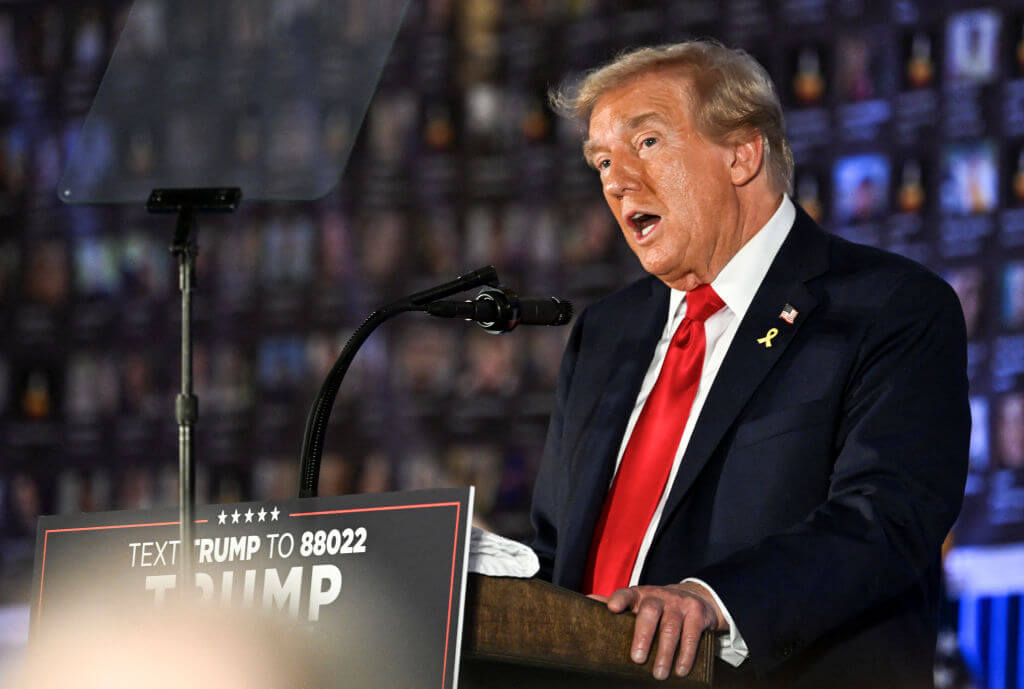Greenspan’s Limited Power To Fix the Economy
The American economy is in trouble and seems to be headed for double trouble. Will the reappointment of Federal Reserve Board chairman Alan Greenspan help to turn things around?
Based on the record — three consecutive terms of the Fed under Greenspan — the answer is a resounding no. And it is not Greenspan’s fault. He is not a man who is either stupid or ill-willed. He is cursed with a post where he is powerless to control what happens in the economy.
Here’s why. Greenspan can — by raising or lowering the interest rate — increase or decrease the money supply. The theory is that when the interest rate goes up, it becomes more difficult to borrow and hence the money supply shrinks. On the other hand, when the interest rate falls, it’s easy to borrow and the money supply increases.
In response to growing unemployment and rising business bankruptcies, Greenspan has tried repeatedly to stimulate the economy by cutting the interest rate. He has driven it down to a point where to cut it again would reduce the interest rate to something close to zero. But — and this is a big but — it has not helped. In the two years that President Bush has been in office, some 2 million jobs have been lost. And each month the number of jobs keeps shrinking. Why?
The reason is that the supply of money is far less meaningful than how the money is distributed. A top 1% of the population may have an income equal to the bottom 90%, but the American market depends upon that 90% to buy products and services. At how many restaurants can a billionaire eat in one day, and how many limousines can he or she ride in at once? How many theaters can be attended at the same time? And how much clothing can be purchased at once?
But, argue the allegedly sophisticated advisers to Bush, with great wealth affluent souls will invest in businesses to create jobs. Yes, they will, if they have a market to purchase their wares and services. But, if mass consumption is absent, to invest in producing more is suicidal. So, what do our rich folks do? They use their money to play the game of buying and selling pieces of paper called securities. And there is a market boom — really a blown-up balloon.
And there’s nothing that the Fed can do. It can raise interest rates to shrink the money supply. But raising the rate — which is the price of money — automatically raises the price of everything involving money, and we get both inflation and stagnation at the same time — a phenomenon that economists call “stagflation,” the simultaneous occurrence of economic stagnation and price inflation. Which means that the Fed can not, on its own, either slow down or speed up the economy.
Despite the Fed’s repeated failure to halt the “irrational exuberance” of the 1990s or to give a lift to the depressing turbulence of the last few years, Greenspan enjoys a reputation as a man who knows what to do. In his way, he is a political genius. When called upon to voice an opinion on the future, he never hesitates. He comes through with Delphic prognostications that amount to saying, “It will be a bright, sunny day tomorrow, if it does not rain.” If there is no rain, he is right. If there is rain, he is right. But sometimes he does take a firm stand. He backed Bush’s tax cut. And now Bush has re-nominated him. It’s a great game that the Romans described as quid pro quo.
A message from our CEO & publisher Rachel Fishman Feddersen

I hope you appreciated this article. Before you go, I’d like to ask you to please support the Forward’s award-winning, nonprofit journalism during this critical time.
We’ve set a goal to raise $260,000 by December 31. That’s an ambitious goal, but one that will give us the resources we need to invest in the high quality news, opinion, analysis and cultural coverage that isn’t available anywhere else.
If you feel inspired to make an impact, now is the time to give something back. Join us as a member at your most generous level.
— Rachel Fishman Feddersen, Publisher and CEO























